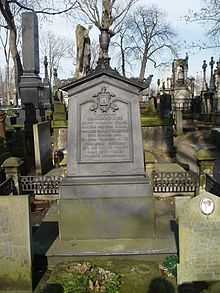Franciszek Młokosiewicz

Franciszek Młokosiewicz (May 5, 1769, Koźminek – March 23, 1845, Warsaw) was a Polish officer who served during the Napoleonic Wars and the November Uprising. He served in the Army of the Duchy of Warsaw and participated in the Battle of Fuengirola.
Military career
The importance of the Battle of Fuengirola was downplayed in both contemporary French and British memoirs.[1] In his memoirs Andrew Blayney denied he was taken captive by the Poles and said it was one of the Society of United Irishmen who captured him. Nevertheless, Blayney's sabre surrendered at Fuengirola remains on display in Kraków's Czartoryski Museum.[2][3]
Following retirement he settled in his wife's manor in Omięcin near Szydłowiec. Although only a Major, he was referred to as "The General" by the local population.[4]
During the November Uprising, Młokosiewicz rejoined the Polish Armed Forces. As the Polish Land Forces were lacking experienced field officers, Młokosiewicz (then 61 and in bad health) was accepted and promoted to the military rank of Colonel.[5]
He served with distinction until the final Battle of Warsaw. Despite his tactical successes in the borough of Wola, which pushed back the initial assault, Młokosiewicz's force was defeated the following day, and Warsaw fell to the Imperial Russian Army.[6]
Three years before his death, Młokosiewicz published his own account of the Battle of Fuengirola and his part in the Peninsular War. It was in large part a reaction to inconsistencies in Blayney's memoirs.[7]
Młokosiewicz is buried at Warsaw's Powązki Cemetery.[8]
Personal life
Młokosiewicz married Anna Janikowska I voto Guźniewska and had three children. They had two sons: Konstanty Młokosiewicz and Ludwik Mlokosiewicz, a botanist.[9] Their daughter, Helena Mikorska, who married Count Mikorski and died in 1901,[10] is best known as the person to whom Frédéric Chopin donated his Mazurka in G major.[11]
References
- ↑ Leon Potocki (hrabia) (1907). Wincenty Wilczek i pięciu jego synów: wspomnienia z drugiej polowy osiemnastego i początku dziewiętnástego stulecia. Druk. Ed. Nicz i S-ka. Retrieved 13 June 2012.
- ↑ "Guerra de la Independencia espanola". Napoleon.org.pl. Retrieved 2012-06-13.
- ↑ "Zbiory - Muzeum, Biblioteka, Fundacja xx. Czartoryskich". Muzeum-czartoryskich.krakow.pl. 2010-10-01. Retrieved 2012-06-13.
- ↑ Dioniza Wawrzykowska-Wierciochowa (1973). Z umiłowania. Wydawn. Lubelskie. Retrieved 13 June 2012.
- ↑ Władysław Zajewski (1990). Powstanie Listopadowe 1830-1831: dzieje wewnętrzne, militaria, Europa wobec powstania. Państwowe Wydawn. Nauk. ISBN 978-83-01-07130-1. Retrieved 13 June 2012.
- ↑ Tadeusz Nowak; Jan Wimmer; Eligiusz Kozłowski; Mieczysław Wrzosek (1973). Dzieje oręża polskiego, 963-1945: Kozłowski, E., Wrzosek, M. 1794-1938. Wydawn. Ministerstwa Obrony Narodowej, Uderzenie Franciszka Młokosiewicza odrzuciło Rosjan na pozycje wolskie. Przeciwnatarcie to zakończyło pierwszy dzień walk o Warszawę, w której Rosjanie odnieśli poważny sukces, natomiast Polacy (Bem i Młokosiewicz) zdołali odwlec upadek miasta o jeden dzień. Retrieved 13 June 2012.
- ↑ http://www.historycznebitwy.com/fuengirola1810/wspomnienia.html, for actual pages of the entire chapter by Młokosiewicz as link covers only the Fuengirola part: ; editor: Adam Count Rzewuski .
- ↑ Jerzy Waldorff (1984). Cmentarz Powązkowski w Warszawie. Krajowa Agencja Wydawnicza. Retrieved 13 June 2012.
- ↑ Grzegorz Piwnicki (2001). Polscy wojskowi i zesłańcy w carskiej armii na Kaukazie w XIX i na poczat̨ku XX wieku. Marsza·lek. ISBN 978-83-7174-686-4. Retrieved 13 June 2012.
- ↑ Stanisław Szenic (1983). Cmentarz Powązkowski, 1891-1918: zmarli i ich rodziny. Państwowy Instytut Wydawniczy. ISBN 978-83-06-00921-7. Retrieved 13 June 2012.
- ↑ Krystyna Kobylańska (1977). Rękopisy utworów Chopina: katalog. Polskie Towarzystwo Muzyczne. Retrieved 13 June 2012.